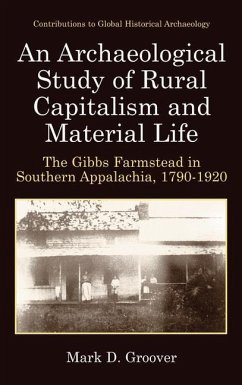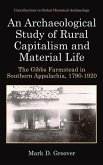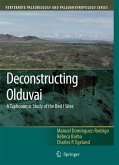Historical archaeology has largely focused on the study of early military sites and homes of upper class. Research on lower classes was viewed as a supplement to local histories documenting political, military and financial leaders of the 18th and 19th centuries.
An Archaeological Study of Rural Capitalism and Material Life will be of interest to historical archaeologists, cultural anthropologists, social historians, and historical sociologists, especially researchers studying the influence of globalization and economic development upon rural regions like Appalachia.
An Archaeological Study of Rural Capitalism and Material Life will be of interest to historical archaeologists, cultural anthropologists, social historians, and historical sociologists, especially researchers studying the influence of globalization and economic development upon rural regions like Appalachia.
From the reviews:
"In many respects this is an impressive and groundbreaking study. I have read very few other analyses that have so effectively used 'unremarkable' farmsteads to say something remarkable about historical processes in the U.S. Groover's method of time sequence analysis is promising and worthy of further use and consideration. In sum, this is an important new book in historical archaeology."
(Judith A. Bense, Journal of Anthropological Research, 60, 2004)
"...this study is an effective contribution to site-based analysis, and shows how the particulars of one unremarkable farmstead can contribute to wider issues of interpretation."
(Harold Mytum, Post-Medieval Archaeology)
"The theoretical structure and analytical methodology of historical archaeology has clearly evolved over the past four decades. Mark Groover's rich study of the German-American Gibbs family farmstead in Knox County, Tennessee, is an example of the detailed application of current theoretical and methodological concepts to the interpretation of this site. Groover produces an extremely fine-grained temporal analysis of the Gibbs farmstead and identifies several trends and patterns in economic activity and material culture."
(Cliff Boyd, The Journal of Appalachian Studies)
"In many respects this is an impressive and groundbreaking study. I have read very few other analyses that have so effectively used 'unremarkable' farmsteads to say something remarkable about historical processes in the U.S. Groover's method of time sequence analysis is promising and worthy of further use and consideration. In sum, this is an important new book in historical archaeology."
(Judith A. Bense, Journal of Anthropological Research, 60, 2004)
"...this study is an effective contribution to site-based analysis, and shows how the particulars of one unremarkable farmstead can contribute to wider issues of interpretation."
(Harold Mytum, Post-Medieval Archaeology)
"The theoretical structure and analytical methodology of historical archaeology has clearly evolved over the past four decades. Mark Groover's rich study of the German-American Gibbs family farmstead in Knox County, Tennessee, is an example of the detailed application of current theoretical and methodological concepts to the interpretation of this site. Groover produces an extremely fine-grained temporal analysis of the Gibbs farmstead and identifies several trends and patterns in economic activity and material culture."
(Cliff Boyd, The Journal of Appalachian Studies)








